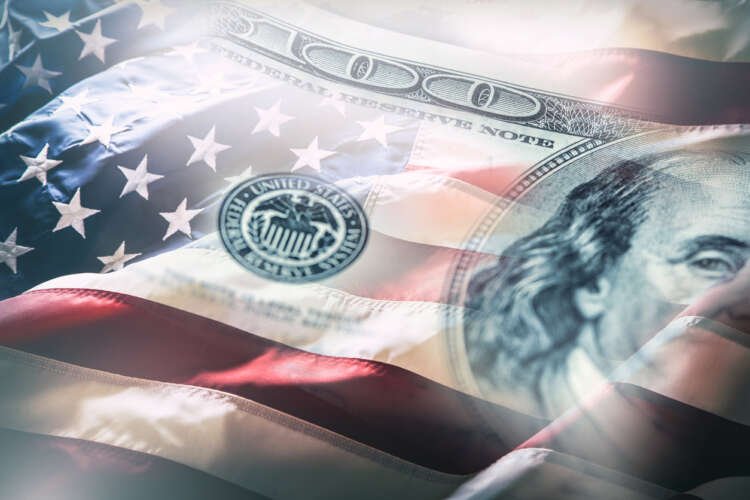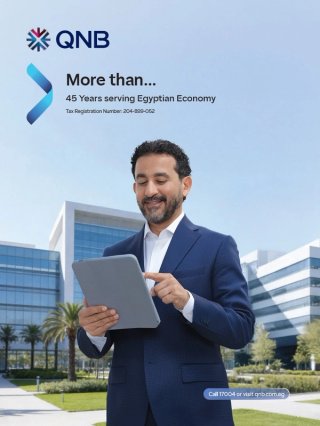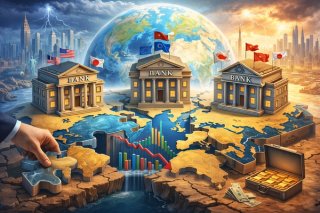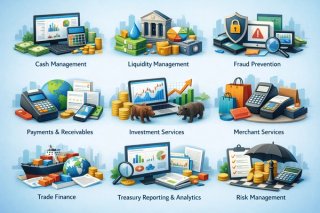Closing The Financial Equity Gap: Why All Banking Should be Done in the U.S.
Published by Jessica Weisman-Pitts
Posted on September 26, 2022
4 min readLast updated: February 4, 2026

Published by Jessica Weisman-Pitts
Posted on September 26, 2022
4 min readLast updated: February 4, 2026

By Sankaet Pathak, CEO & Founder, Synapse
Sparked by the COVID-19 pandemic, consumer preferences for financial services around the world have seen a significant shift to digital and online. We have also seen other forms of currency, or stores of value, such as cryptocurrency and NFTs enter the mainstream. In fact, according to McKinsey, over 4 in 5 Americans used some form of digital payment in 2021. However, it has become increasingly apparent that the Internet was not designed to meet the current demand for reliable digital banking services effectively.
We are beginning to see more and more frequent day-to-day interactions around money, and what we perceive as money is now metaphysical given the digital landscape. But there is a very wide gap in how and what the Internet can do for people. According to The World Bank’s Global Findex Database, a global measure of financial services use, the share of adults in developing economies who make or receive digital payments was 57% in 2021, while in the U.S. it was 92.9%. Another example can be found in cryptocurrencies: 46% of American adults holding or using cryptocurrencies had an annual income of $100,000 or more. It is expected that these stores of value will eventually become an embedded part of the Internet. When that happens, should only people in the United States get access?
When I emigrated to the U.S. to attend college, I experienced firsthand how difficult it can be to access the critical financial services needed to prosper. These barriers can be as simple as not having a current U.S. mailing address or social security number. To many those hurdles might seem small but to those that are behind them, they can appear insurmountable.
In order to serve the entire world without disparities in access to these services, we must seek to establish one store of value that transcends borders. This will have a better shot of succeeding if it is done within the U.S. regulatory regime and structure. First, economically it will be more viable and better monetized, and therefore more widely adopted. Second, America does not have, nor does it pose, a risk of net negative interest rates. Third, there is a heightened consumer concern around the safety and soundness of one’s money, and the wealth one has accumulated. The size and strength of the U.S. economy, its openness to trade and capital flows, strong property rights, and the size and stability of its stock market firmly support the safety and security of the USD, which is already overwhelmingly the number one global store of value. With all of these consumer behavior changes in how we store, use, and consume value, there is a tangible need for a global financial services infrastructure in this new world, and it should live in the U.S.
The Financial Crimes Enforcement Network (FinCEN) – the federal body responsible for monitoring financial crimes and illicit activity – may argue that this approach would give the world access to the U.S. banking system, a dangerous power to hand over and democratize. However, we finally have the technology to do proper identity verification, using biometric technology, behavioral analytics, or data profiling, for people around the world. Further, the U.S. possesses the computational power to do transaction monitoring and oversight in a far more automated way. This wouldn’t be done behind closed doors. With this approach, you would have first-hand visibility and access to how money is moving at a global level. It’s less risky now than ever before because of the technology improvements we’ve made in both those core areas.
To unlock the construct of what a global U.S. account looks like we must treat banking as a service and build new, more democratic and transparent infrastructure in financial services. A single unified infrastructure is better for everyone, is systematically convenient to support and delivers on the promise of truly modern, borderless, and equitable access to financial services for customers without geographic limitations.
About the Author:
Sankaet is the CEO and Founder of Synapse, a banking as a service platform. He is driven by a passion to ensure that everyone around the world has access to best-in-class financial products, regardless of their net worth.
Digital banking refers to the online delivery of banking services through digital platforms, allowing customers to conduct financial transactions via the internet.
Financial equity refers to the ownership value of an asset after all liabilities have been deducted, representing the net worth of an individual or organization.
Identity verification is the process of confirming a person's identity, often using documents or biometric data to ensure security in transactions.
Digital payments are transactions made electronically, allowing consumers to pay for goods and services online or via mobile devices.
Explore more articles in the Banking category











